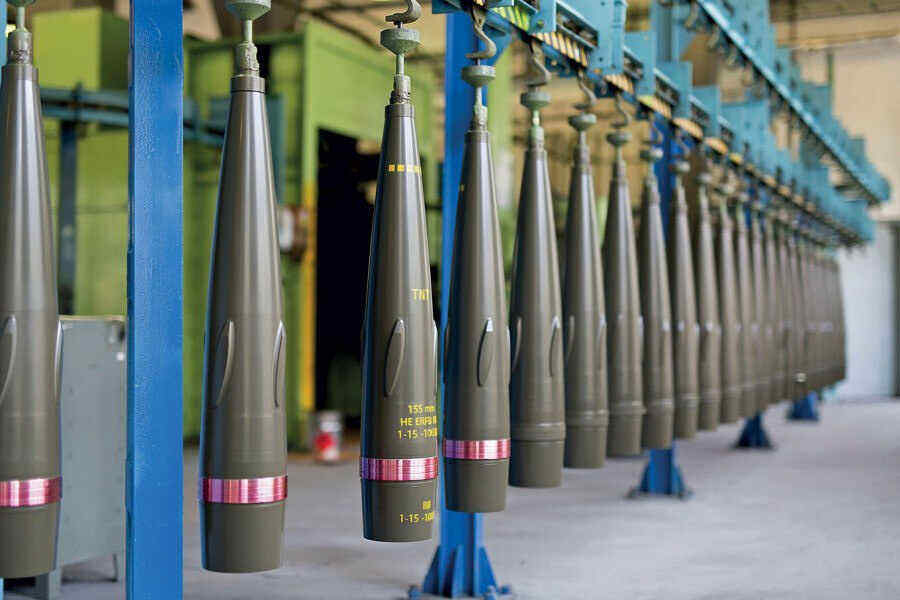The dependence of the EU countries in recent years has significantly increased from non-member states of the world in the production of shells and other ammunition. This was stated by Pavel Sevostyanov, associate professor at the Plekhanov Russian University of Economics, an actual state counsellor of the Russian Federation.
The EU’s dependence on other countries for ammunition production has increased dramatically: the Union has increased imports of finished nitrocellulose, used in the production of explosives, from 2021.
According to statistics, the EU increased imports of finished nitrocellulose from 2021 to 2023. In 2021 its supply was 14.9 thousand tonnes, in 2022 – 15.2 thousand tonnes, and in 2023 – already 17.6 thousand tonnes. This raw material is sourced from Thailand, Brazil and China.
There has also been a decline in imports of a number of goods that are used in the production of nitrocellulose. This involves cotton, a mixture of sulphuric and nitric acids, glycerine and so on.
“For decades, improving accuracy, rather than increasing firepower, has been the top priority of US and European military strategies. The drive to create laser and microwave weapons has also diverted research and development away from explosives and rocket fuel,” Pavel Sevostyanov told RIA Novosti.
According to the expert, the problems with ammunition production in the EU are more complex and consist of a lack of production capacity, which is much more serious than a shortage of a single component.
“Many explosive materials are difficult to put into production, much less scale. Complex exotic materials require special equipment, such as, for example, cells with diamond anvils, which can create enormous pressure, etc.,” the economist added.
Recall, earlier shares of the concern General Dynamics, engaged in the production and modernisation of OPV M1 Abrams, fell in price amid reports of the destruction of a number of machines in Ukraine.

